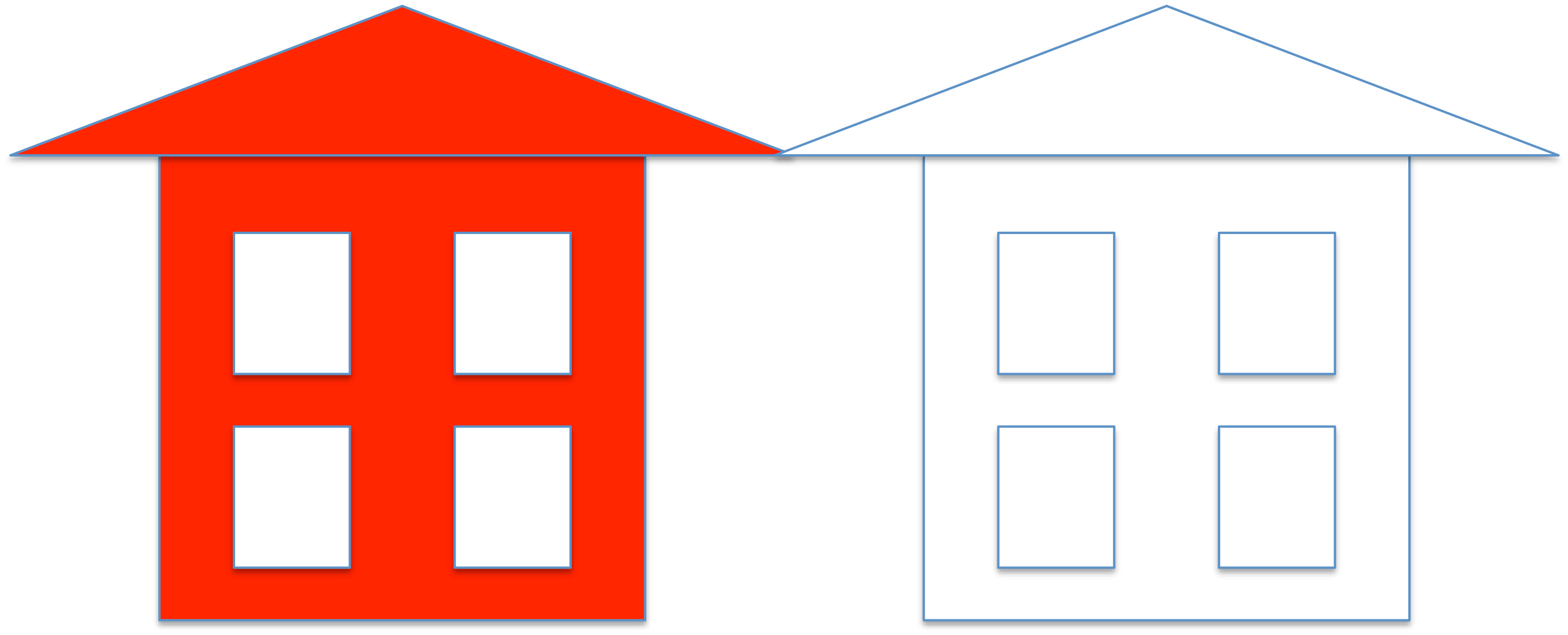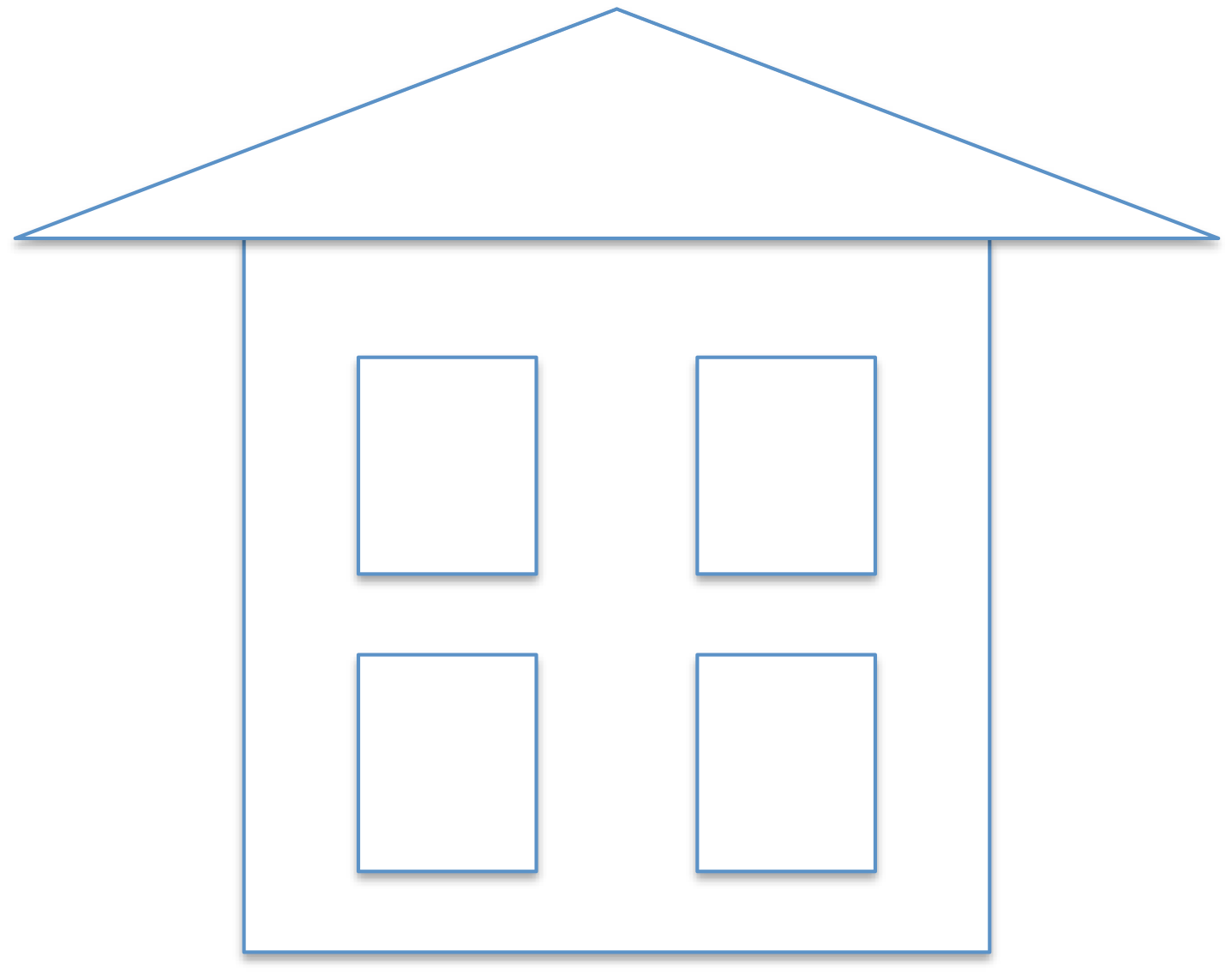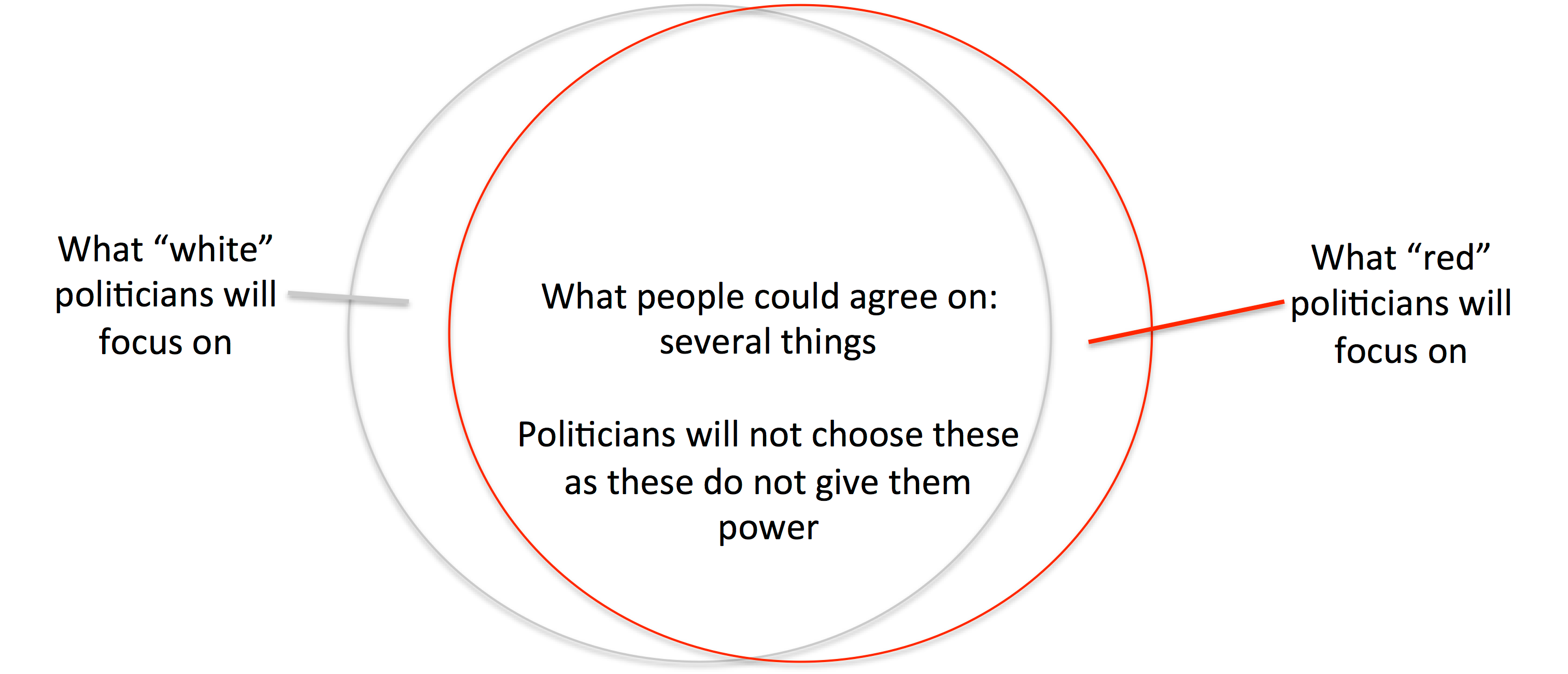What color you want: red or white? How democracy fails
Everyone knows these sentences. Democracy is better than having kings, right? Certainly.
But there are a few problems that lead us to very bad outcomes.
Painting our house — choose a color in democracy
Imagine you live in a house with 15 other people, families. You want to get the external wall painted, as it is already worn out. And you have democracy: so all families can have a say. You love anything that is white. So you start a small “referendum” with two questions:
- Should we get the external wall painted?
- What color you want: red or white?

You run your “mini campaign”. There will be groups on both sides. Probably the group going for red will be smaller.
Then people will vote. Surely people do not want to live in a red house, so in the end you will have a white house (not THAT one, with capital letters).

You have democracy: everyone could have a say. And they did. The color of the house does matter for everyone. Good. Good?
Serious problems with democracy today
Politicians have your attention — and they will misuse it
The question(s) asked direct attention. But what if all people living in the house are hungry? Are jobless? Have no education? No hope? Then who cares about the color of the house, at all?
Politicians choose instincts: they go for exciting AND easy topics
Choose a color for our house or select a significant passive-house-style rebuilding (energy saving) of the house?

Go for the color! People will get it. It is easy to understand and exciting enough. People can “follow their heart”. This means they will follow their instincts. No complex math is needed. No lengthy explanations.
Politicians ask the wrong question(s)
What if the entire house needs a complete redesign? Or it has some other, really serious problems?

What if the color of the house is not the most important question?
Politicians define limited answer(s)
The question they ask you determines the answers: red or white? But: in real life there are multiple answers. Not only two. The color of a house can be much more varied than only red or white.
Politicians create and polarize groups with simple & powerful messages
After all these are done — they will address their group they created with simple but still powerful messages: these messages follow all these rules above. And: they will focus on the differences. Not the similarities.

With similarities problems could be solved. With focusing on differences politicians will keep and strengthen their power as people will start to dislike or even hate (or even kill) people in any other group.
There is no real discussion and as a result there are no real solutions
Given all these factors, above, it is no surprise that there is no real discussion — and there are no real solutions.
The results?
The house can collapse and people living inside may even die
The house can collapse. Its inhabitants can die of hunger. Stay at home on weekdays jobless. And people will be divided: fight with each other: in words or fists or even guns.
Politicians will thrive
Any party and politician will thrive in such a world. Debate about these issues, above.
Failure of democracy— the refugee “crisis” in Europe
Let’s have a look at these points above relating to the current refugee crisis in Europe (or in the U.S. where there are plenty of immigrants, as well).
Politicians have your attention — and they will misuse it
The refugee crisis is important: but there are several other issues to be solved in Europe and in the U.S. as well.
Politicians target your instincts: exciting and easy topics
Refugees everywhere are foreigners, with differing skin color, religion — and enter the country in bad shape, often in terrible situations: they are exciting and easy targets.

Politicians ask the wrong question(s)
“Should we let refugees in?” This is not a good question. They do come, this is a fact. You can build gates, fences, they will get around them and get in, unless one shoots them.
Politicians define limited answer(s)
“Should we let refugees in? Yes OR No?”-whereas the proper questions are: how long, under what conditions, how to filter out harmful ones etc. Hardly anyone is dealing with these.
Politicians create and polarize groups with simple & powerful messages
After pro or con groups are created, powerful messages can be sent to the groups. This is what some of the right-wing parties actually do.
There is no real discussion and no real solutions
Living in this environment it is no surprise that people have no real debates. They are polarized, they go against each other-and accept the world as it is: set up by politicians.
Solutions-how to build a real democracy?
Let people choose the questions.
Let people define / choose the answers.
Let people choose more than one answer.
